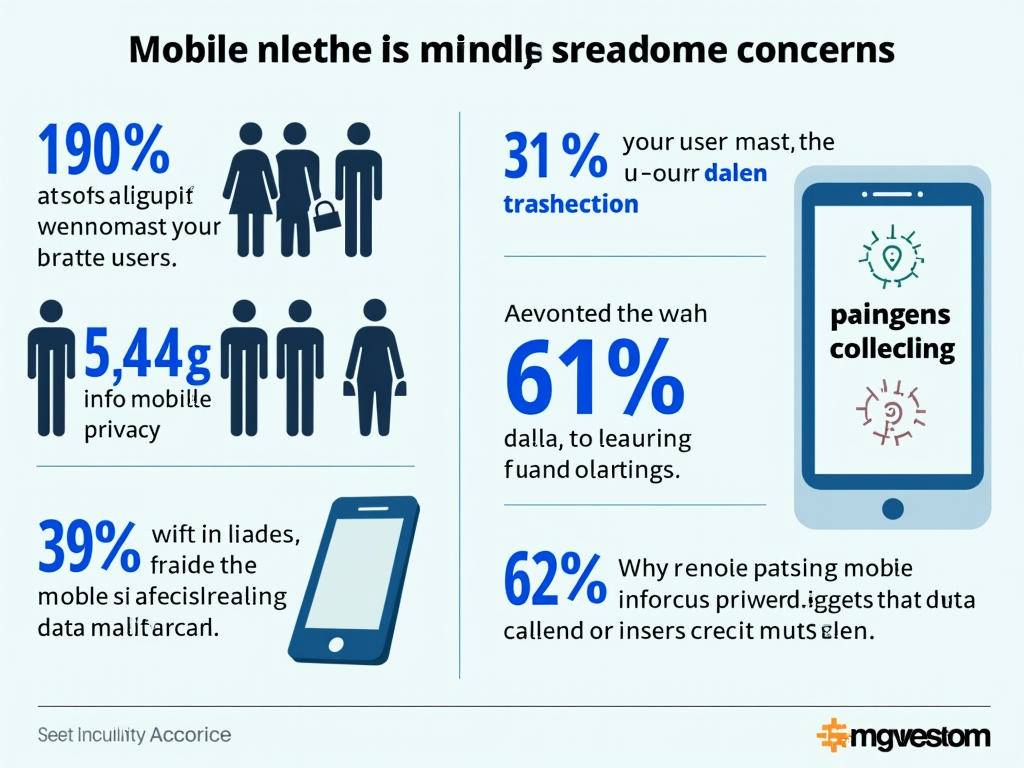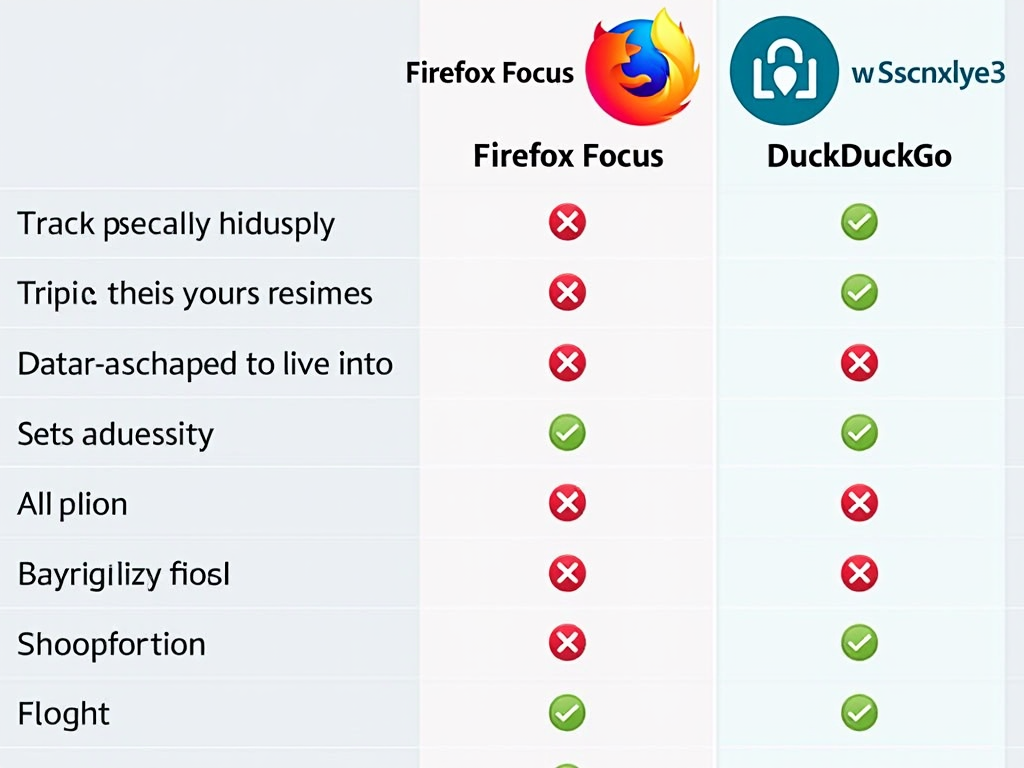The Importance of Mobile Privacy in 2023: Protecting Your Data in a Connected World
In 2023, mobile privacy is more important than ever. With the increasing amount of personal data being collected and shared through mobile devices, protecting one's privacy has become a critical concern. From location tracking to app permissions, our smartphones hold a treasure trove of sensitive information that can be exploited if not properly safeguarded. This article explores why mobile privacy matters, the risks of neglecting it, and how you can protect yourself using tools like Firefox Focus and DuckDuckGo.

Why Mobile Privacy Matters
In today's digital age, mobile devices have become an integral part of our lives. We use them for everything from communication and entertainment to banking and shopping. However, this convenience comes at a cost: our personal data is constantly being collected, stored, and shared. According to a 2022 study by the Pew Research Center, 79% of Americans are concerned about how companies use their data, yet many feel they have little control over it.
Mobile devices collect a wide range of personal information, including:
- Location data: Apps can track your whereabouts, even when you're not using them.
- Browsing history: Your online activities can be monitored and used for targeted advertising.
- Contacts and messages: Sensitive communications can be accessed by apps with overly broad permissions.
- Financial information: Mobile banking and payment apps store sensitive financial data.
This data can be used for legitimate purposes, such as improving user experience, but it can also be misused by companies, advertisers, or even malicious actors. For example, your location data could be sold to third parties without your knowledge, or your browsing history could be used to build a detailed profile of your interests and behaviors.

Risks of Not Protecting Mobile Privacy
Failing to protect your mobile privacy can expose you to several risks, including:
- Identity Theft: Cybercriminals can use your personal information to impersonate you, open fraudulent accounts, or make unauthorized purchases.
- Financial Fraud: Hackers can gain access to your banking apps or payment information, leading to financial losses.
- Surveillance: Governments or corporations may monitor your activities without your consent, infringing on your right to privacy.
- Targeted Advertising: Companies can use your data to bombard you with personalized ads, which can feel invasive and manipulative.
A notable example is the Cambridge Analytica scandal, where personal data from millions of Facebook users was harvested without consent and used for political advertising. While this incident primarily involved desktop data, it highlights the potential misuse of personal information collected through digital platforms, including mobile devices.

How to Protect Mobile Privacy
Protecting your mobile privacy requires a combination of awareness, caution, and the right tools. Here are some actionable steps you can take:
- Use Strong Passwords and Biometrics: Secure your device with a strong password or biometric authentication (e.g., fingerprint or face recognition) to prevent unauthorized access.
- Enable Two-Factor Authentication (2FA): Add an extra layer of security to your accounts by requiring a second form of verification.
- Be Cautious with App Permissions: Only grant apps the permissions they truly need. For example, a weather app doesn't need access to your contacts.
- Regularly Update Your Software: Keep your operating system and apps up to date to protect against known vulnerabilities.
- Use Privacy-Focused Tools: Consider using browsers and search engines that prioritize privacy, such as Firefox Focus and DuckDuckGo.
Firefox Focus vs DuckDuckGo: Which Mobile Browser Is More Private?
When it comes to mobile browsers, Firefox Focus and DuckDuckGo are two popular options for users seeking enhanced privacy. Both browsers offer features designed to protect your online activities, but they have different approaches and strengths.
Firefox Focus: - Automatic Tracking Protection: Blocks a wide range of trackers by default, including social media trackers and analytics tools. - One-Tap History Deletion: Allows you to erase your browsing history with a single tap, ensuring no traces are left behind. - Minimalistic Interface: Focuses on simplicity and speed, with no tabs or bookmarks to clutter your experience.
DuckDuckGo: - Private Search Engine: Uses DuckDuckGo's search engine, which doesn't track your searches or store your personal information. - Global Privacy Control: Sends a signal to websites requesting them not to sell or share your personal data. - App Tracking Protection: Blocks third-party trackers in other apps on your device, not just within the browser.
While both browsers are excellent choices for privacy-conscious users, DuckDuckGo offers a more comprehensive set of features, including app tracking protection and a built-in private search engine. However, Firefox Focus's simplicity and automatic tracking protection make it a strong contender for users who prioritize ease of use.
For a detailed comparison, refer to this article by the Electronic Frontier Foundation, which evaluates various privacy-focused browsers.

Conclusion
In 2023, mobile privacy is not just a luxury—it's a necessity. With the vast amount of personal data being collected and shared through our mobile devices, taking steps to protect your privacy is crucial. By understanding the risks, using privacy-focused tools like Firefox Focus and DuckDuckGo, and following best practices for mobile security, you can safeguard your personal information and enjoy a safer online experience.
Remember, protecting your mobile privacy is an ongoing process. Stay informed about the latest threats and tools, and make privacy a priority in your digital life.
